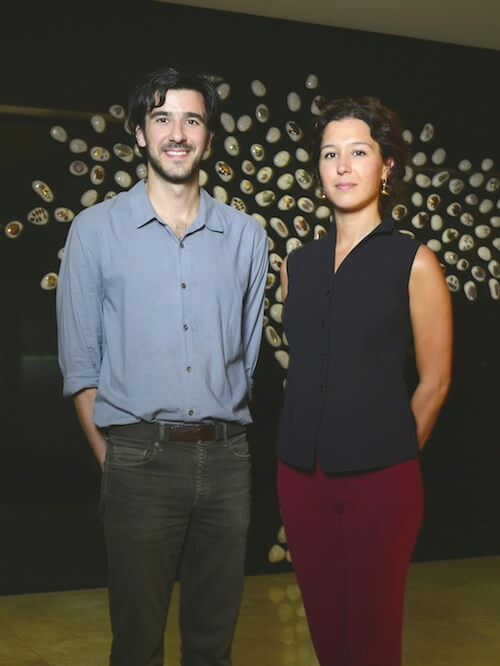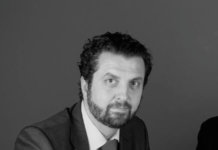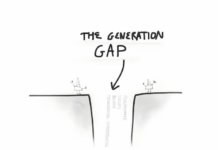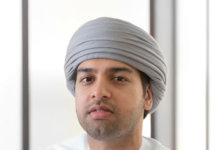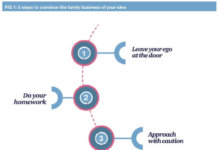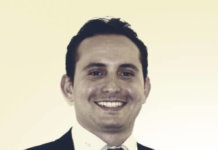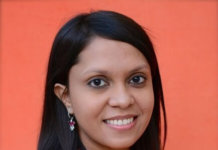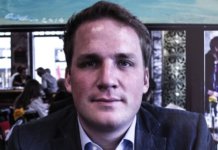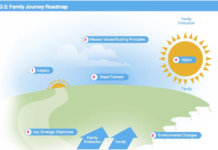Interview with Şirin Çelikel and Kerem Çelikel, Anel Holding, Turkey
Anel Holding was founded in Turkey in 1986. By 2013 the construction company reported sales of over $230 million. With the conglomerate’s core business activity in electromechanical contracting, the owning Anel family caters to large-scale projects such as airports, factories and hospitals, among a host of additionally complex facilities. Operating in Turkey, the Middle East, Eastern Europe, Central Asia and Russia, Anel Holding has also expanded into solar-based renewable energy solutions.
Behind the scenes of this growing enterprise, labours a committed family of which the second generation met with Tharawat magazine: Brother and sister, Şirin and Kerem, joined a thriving business, which was founded by their parents. Both siblings hold international degrees in electrical engineering and MBAs from prestigious business schools, yet bring widely different skills to the family business. Tharawat magazine spoke to the Çelikel siblings about their parents, their generation, and the essential nature of patience and perseverance.
The Çelikel core
“It’s just the four of us working together,” says Şirin when asked how many family members are involved in Anel Holding today. Kerem and Şirin joined their parents in the operation of the multimillion dollar construction business a few years back. Kerem expands: “My father is the CEO, my mother is head of the supporting divisions. Şirin is in the planning and business development department. She deals more in the operational side together with my father while I work with my mother on all things human resources and finance.”
[ms-protect-content id=”4069, 4129″]
“I feel I am more like my father and my brother is more like my mother,” says Şirin. “I think we got these roles based on our characters. We try and learn from our parents. From our father we learnt that you have to build trust in the business to get results. My mother taught us to always question the status quo and to take a step back at all times.”
The Çelikel siblings always knew that they wanted to join the business. “We see other businesses and how unhappy some of the young members are to have to work for the family but for me and my brother it’s different; we never doubted that we would end up here. We both have the ambition to be happy in our careers and to take care of our family at the same time,” explains Şirin. “The family business allows us to do both,” adds Kerem. Both feel that their parents never pushed them to join yet each underlined the importance of joining once they’d experienced time away from the business. Having been allowed time to mature beforehand, they both value the experience of having worked outside the family business for a while.
An entrepreneurial upbringing
Considering the ease with which the siblings approached their respective decisions to enter the family business, it is left to wonder whether their motivation stems from childhood conditioning. “After school we used to do our homework at our parents’ office,” explain Kerem and Şirin. “My mother was always at work and my father between job sites and his desk. The company has changed so much since those early days. It’s grown hundreds of times in size,” explains Şirin. “So not only my perception changed over the years but also the company itself. Being part of an entrepreneurial family means that we will never forget the beginnings.”
Despite their closeness, Şirin and Kerem’s parents never offered much about the inner workings of the firm while the two were being raised. “My parents never shared what was going on within the business. They were normal parents at home so we had a very quiet family life,” explains Şirin. “The day I stepped into the office I really didn’t know anything. My brother and I came in with high ideals. But we soon learnt that all that applies to theory does not necessarily apply in practice. Our parents played a nice trick in the beginning; any time we pointed out something that was wrong, they would say ‘fine, go ahead and tell us why we should change it.’ We grew passionate about our own ideas and they would just give us the opportunity to prove ourselves.”
“Every professional person has a different area where they are strong,” continues Kerem. “When you suggest something new to my mother you have to immediately tell her about the way it is going to be implemented. When you suggest something to my father, he will want to know the results of the operations. So whenever we have an idea we have to pitch it to our parents as if we were consultants.” Both siblings smile at the thought.
Though the approach to change is demanding, the Çelikels do not hesitate when making important decisions. “I think one of the many strengths we bequeathed from my mother and my father is how swiftly they operate. They like to make fast decisions within weeks, sometimes only days or even hours,“ said Şirin.
Lessons learned
Şirin enthusiastically explains that joining the family business has been a great experience, but that she still remembers the missteps she made along the way. “One of the mistakes I made was that whilst learning the ropes, I should have spent more time understanding the character of the company. The culture of a construction company is pragmatic and team oriented. An early mistake I made was the awarding of medals to the best construction workers after a big project. When we gave out the prizes it was very awkward. No one wanted to be singled out in this way. Everyone wanted to receive a reward for the whole team. So my idea had gone against the character of the company and though it might have worked in another setting, it would never work for our family business,” says Şirin frankly.
“Such mistakes are so important. And we all have made them,” adds Kerem. “The company also got to know Şirin and me, so it works both ways. I am aware that the character of the company also has to be reflected in the way we hire people. It is all based on a collaborative approach. For instance, the team gets a say in who gets hired. They need to feel as if they’re a part of the process.”
An additionally critical lesson the second generation has learned on the job has been the kind of mentorship, which guided them. Şirin explains: “It makes for such a great and exciting opportunity. Construction is a hands-on business. You can’t just talk, you have to get the job done. My parents gave us roots to rely on and they gave us opportunities to change things.” Kerem attributes this to the authenticity of his parents’ leadership style. “They didn’t try to be like other people in business,” he says.
Şirin agrees with her brother. “People always try to imitate other people,” she states. “It doesn’t work like that. You have to be yourself within your company. You have to do it your way. I think our parents didn’t try to be anyone else and that is why it worked. We felt the same way when we joined. We watched best practice but we tried to make it our own. In our generation it is hard to not feel pressured to imitate competitors because peer pressure has increased with the vast amount of social media available.” The Çelikel siblings strongly agree that being allowed to be themselves in the workplace is yet another inherent advantage of working in the family business.
Impactful planning
Having a clear strategy that everyone is in sync with is important to the Çelikel family. “Your authority will be defined by the clarity of your decision-making and consistency,” says Şirin wisely. “We have to consider everyone in our strategy. My brother is particularly strong at this all-inclusive approach. He issues a report for the whole company every six months which shares with all the employees the new goals and achievements.”
“We have targets and everyone knows about them. Whenever we do this, this gives our entire team the sense that they are valued,” adds Kerem. “This goes hand in hand with our core philosophy that performance management should come before career development. We need to make sure that this is always the case.”
Indeed, both Kerem and Şirin lay great emphasis on the further professionalisation and institutionalisation of Anel Holding. “I believe the second generation in a family business has a great responsibility in this regard,” states Kerem. “Companies are founded by the first generation in a great entrepreneurial effort. The second generation has to work equally hard towards the “institutionalisation” of the company, so that it can nurture a self-governing responsibility and develop a sustainable management culture.”
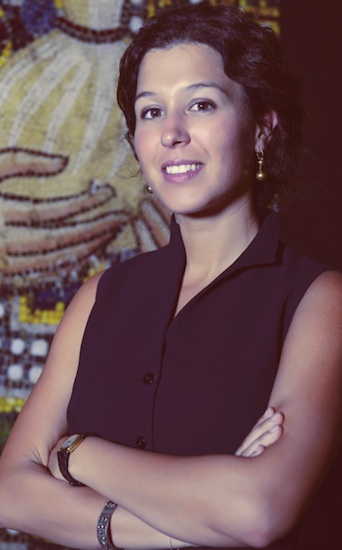
Our generation
According to Şirin and Kerem Generation Y members are perpetually interested in how their output improves the community. “If you want to attract the best and brightest of this generation you should focus squarely on social values,” says Şirin with regard to members of her generation. “Most of Generation Y doesn’t have to work for survival like previous generations, at least this is the case here in Turkey. Their performance is dependent on being socially compatible. They want to do things sustainably. They want to see CEOs and the company as a whole relying on social values whilst cherishing their importance. That’s why if you are serious about retaining Gen Y members, you have to have a very good HR department,” underlines Kerem.
Şirin is equally comfortable with analysing the weakness of her generation: “Gen Y members are not exactly what I would call obedient. They do not want to be dominated they want to be cultivated. If you can’t make them believe in what they’re doing, they won’t do it. You have to convince them that the goal is there even if they have to do things they dislike in the meantime. I think generally in our generation we expect too steep a career path. We have missed the point of hard work. We see these stellar rises to fame and fortune around us and it feeds into the impatience we already possess far too much of as a generation. But how much of it is sustainable? You can’t jump to success, you have to focus and develop your way.” Kerem also advocates applying more patience as an effective strategy for a generation that is used to a Google-like response time to all its needs. “How is a business supposed to keep up with such an unattainable mentality?” he asks.
The Çelikel siblings understand their generation well and know just how family businesses can attract their peers. “If the family businesses do not listen and do not value and objectively investigate the new ideas, then Gen Y members will not want to stay,” answers Şirin readily. “They need to see that their ideas and suggestions get implemented. Let them be the changers of the company.”
“My mother really listened to us and it made all the difference in how we felt about joining the company,” adds Kerem. “Even if she doesn’t always think our ideas are good, she still listens till the end.” Allowing the second generation to have an impact has empowered the Çelikel siblings in ways, which are leading them toward realising their cause in a number of ways beneficial to a family firm with a well-planned future ahead.
Tharawat Magazine, Issue 23, 2014
[/ms-protect-content]


